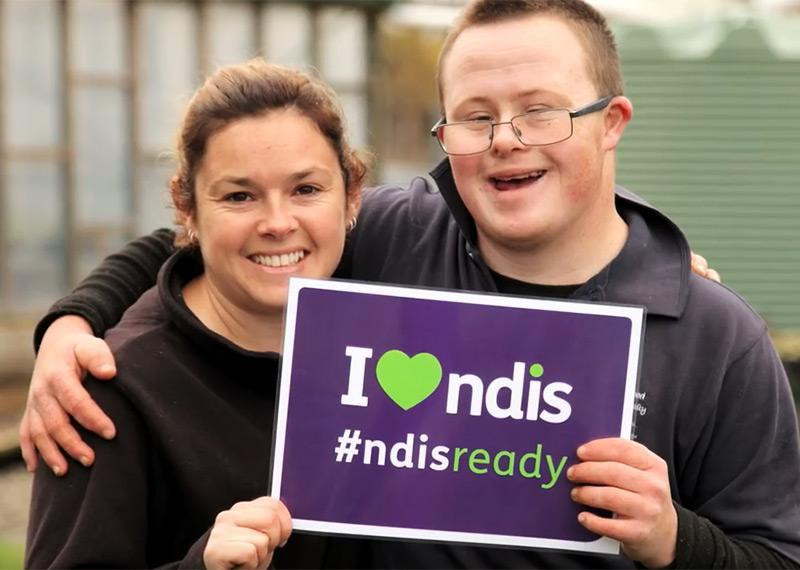The National Disability Insurance Scheme (NDIS) provides essential support to Australians living with disabilities, helping them lead more independent and fulfilling lives. However, before accessing funding for NDIS core supports, NDIS improved daily living, or NDIS capacity building, you must first determine if you meet the eligibility requirements.
This comprehensive NDIS eligibility checklist will guide you through the key criteria and help you understand whether you qualify for support. Understanding these requirements is essential, as eligibility determines access to life-changing services, including therapy, assistive technology, personal care, and community participation.
1. Age Requirement
To be eligible for the NDIS, you must be under 65 years of age at the time of your application. If you are older, you may be directed to other support programs such as My Aged Care. The age requirement ensures that individuals receive the right form of support suited to their stage in life.
2. Residency Status
Applicants must meet the following residency requirements:
-
Be an Australian citizen, permanent resident, or hold a Protected Special Category Visa.
-
Live in an area where the NDIS is available.
Ensuring eligibility under residency status helps the NDIS allocate resources to those who can access services legally and sustainably.
3. Disability Criteria
You may qualify for NDIS support if you have a permanent and significant disability that affects your ability to perform everyday tasks. The condition must:
-
Be lifelong or likely to be permanent.
-
Substantially impact your ability to participate in daily activities.
-
Require assistance from allied therapy services, equipment, or technology to improve independence.
Disabilities covered under the NDIS include, but are not limited to:
-
Intellectual disabilities
-
Autism spectrum disorder (ASD)
-
Neurological conditions (e.g., cerebral palsy, multiple sclerosis, Parkinson’s disease)
-
Physical disabilities affecting mobility and coordination
-
Sensory impairments (vision or hearing loss)
-
Psychosocial disabilities affecting mental health and emotional well-being
4. Early Intervention Support
If you have a developmental delay or a disability that could worsen over time, you may still be eligible for early intervention services under the NDIS. This support aims to reduce the long-term impact of your disability by providing early access to therapies and other interventions.
Benefits of early intervention include:
-
Improved functional outcomes
-
Greater independence in daily life
-
Reduced need for long-term intensive support
-
Enhanced ability to participate in school, work, and community activities
5. Functional Impairment Assessment
The NDIS assesses how your condition affects your ability to perform everyday activities across various areas, including:
-
Mobility and motor skills – Challenges in movement, walking, or coordination.
-
Communication – Difficulties with speech, language, or social interaction.
-
Social interaction – Challenges in forming relationships or participating in group activities.
-
Learning ability – Cognitive impairments that impact education and skill development.
-
Self-care and personal tasks – Difficulty managing hygiene, dressing, or eating independently.
-
Self-management skills – Issues with organizing daily routines or making independent decisions.
If your condition limits your ability to function independently, you may qualify for NDIS capacity building programs designed to enhance your skills and daily living activities.
6. Need for Support and Services
Your eligibility for the NDIS depends on whether you require specialized support to carry out daily tasks. Some of the available supports include:
-
NDIS core supports for everyday needs like personal care, transport, and community participation.
-
NDIS improved daily living services, including occupational therapy, speech therapy, and psychological support.
-
Allied therapy services to support physical, psychological, and developmental needs.
-
Assistive technology such as wheelchairs, hearing aids, and communication devices.
-
Home modifications to improve accessibility and safety.
These services are tailored to individual needs, ensuring participants receive support that fosters independence and well-being.
7. Compliance with NDIS Price Guidelines
When approved, participants must work within the NDIS price guidelines when choosing an NDIS service provider. These guidelines help ensure fair pricing and appropriate use of funding.
Understanding these guidelines ensures that participants maximize their funding and receive high-quality services without unnecessary financial burdens.
What’s Next?
If you meet the above criteria, the next step is to apply for the NDIS. You can start by:
-
Contacting the NDIS service provider in your area.
-
Submitting an Access Request Form (ARF) along with supporting medical documents.
-
Undergoing an eligibility assessment.
If approved, you can begin planning your support services with a provider that meets your unique needs. This includes working with a Local Area Coordinator (LAC) to develop an NDIS plan tailored to your goals and requirements.
Taking the Next Step: Your Path to Empowerment
Understanding NDIS eligibility is crucial for accessing the support you need to improve your quality of life. Whether you require assistance with daily activities, early intervention, or specialized therapies, the NDIS can provide the necessary resources to help you thrive.
Taking the first step toward NDIS support means opening the door to greater independence, community participation, and improved well-being. If you're unsure about your eligibility, consult an NDIS service provider or a disability advocate for guidance.

